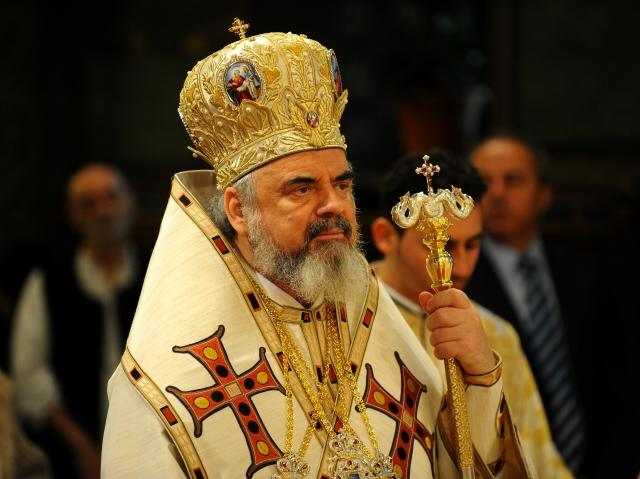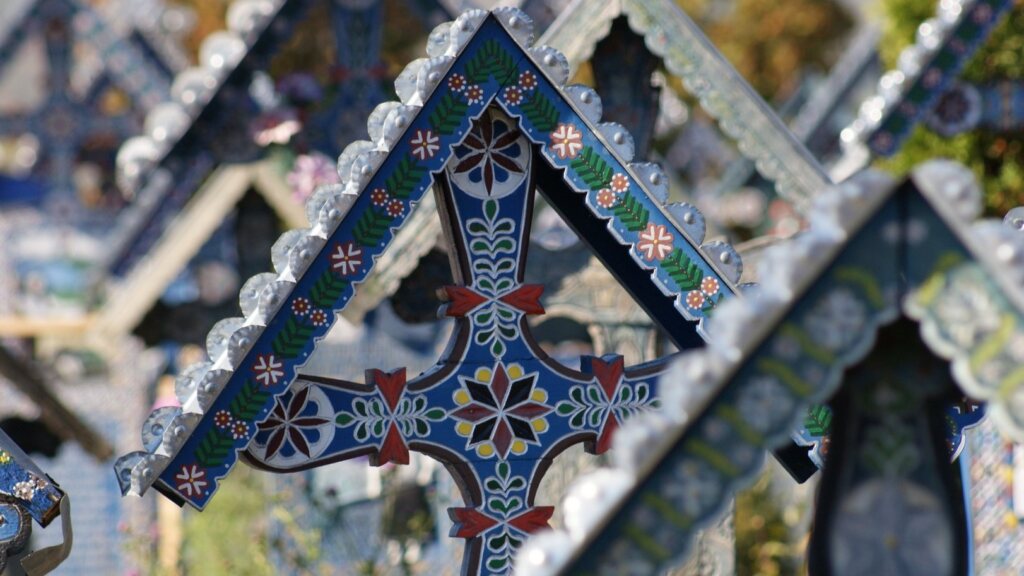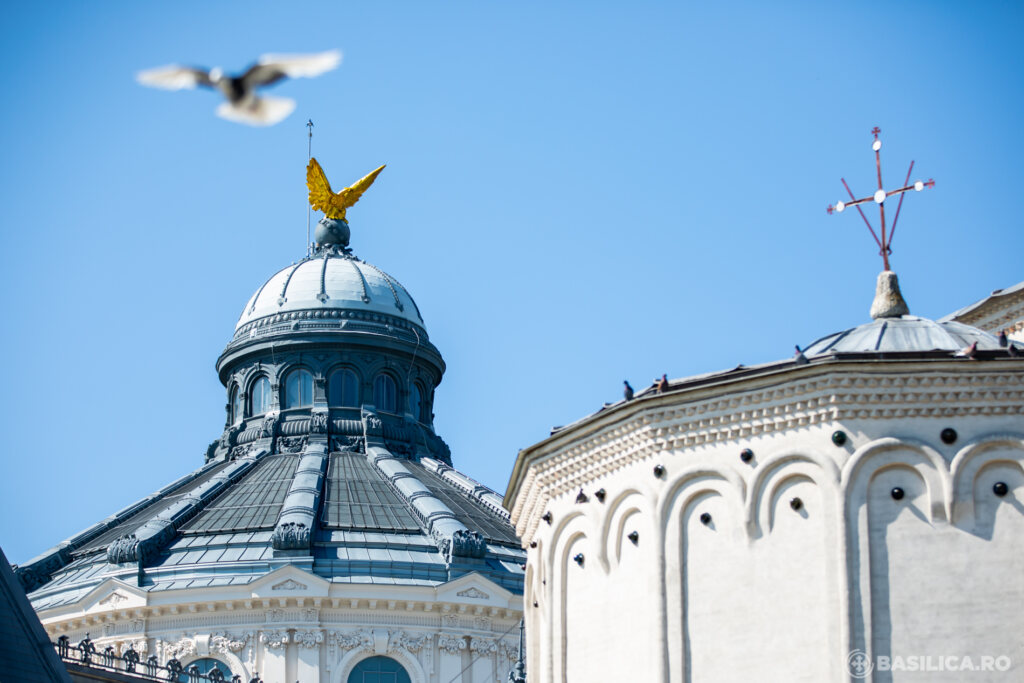In the sermon delivered at the Divine Liturgy celebrated at the Patriarchal Cathedral on 30 November 2012, feast of Saint Andrew the Apostle, the First Called, His Beatitude Daniel, Patriarch of the Romanian Orthodox Church emphasised the life and missionary activity of the Protector of Romania. Saint Andrew the Apostle was the first preacher of the Gospel to the Gets – Dacians, in the territory between the River Danube and the Black Sea.
<i>The preaching of the salvation Gospel is a holy work to which God calls the humans according to His good will without their knowing before. </i>
“Saint Andrew the First Called is named as such because he was the first one that Jesus Christ, our Lord, called to apostleship, to preach the salvation Gospel. This preaching of the salvation Gospel is a work to which God calls the humans according to His good will, without their knowing before.
Jesus Christ, our Saviour, spontaneously looks into the soul of every human and chooses His disciples. First of all, Saint Andrew was a disciple of Saint John the Baptist. Soon after Saint John the Baptist baptised Jesus Christ, our Saviour, in the River Jordan, when Jesus passed in front of him, Saint John the Baptist told Andrew, his disciple: <i>Here is the Lamb of God who takes away the sin of the world.</i>
When Saint Andrew heard this he realised that Jesus was the One whom the people had been waiting for centuries as Saviour. The Lamb of God who takes away the sin of the world is the One who will be sacrificed for the sins of the world, like the Easter lamb which represented the Mystery of the Sacrifice of Jesus. So, he went after Jesus and asked Him: <i>where are you staying? </i>and He showed him. Afterwards Andrew took his brother Peter to Jesus and told him: <i>We have found Messiah! </i>The moment He saw Simon, Andrew’s brother, Jesus Christ, our Saviour, told him: <i>You are Simon, son of John. You are to be called Cephas,</i> which is translated Peter. So, the Saviour gave Saint Peter a prophetic name because he would confess Him, to show what the stone of the true faith was, namely the faith in the divinity of Jesus Christ, namely Jesus of Nazareth was not a simple human, but God who was made man out of love for the humans and for their salvation”, showed His Beatitude.
His Beatitude Patriarch Daniel has also revealed the life of Saint Andrew the Apostle: “Saint Andrew the Apostle was Peter’s brother, their father was John, and they were fishermen and coming from a small town named Bethsaida. Jesus Christ, our Saviour, has changed their lives all of a sudden when He called them to a work which they had not expected and neither understood in the beginning. After the Crucifixion and Resurrection of Jesus Christ, our Lord, after His Ascension to Heaven and after the Descent of the Holy Spirit at the Pentecost, the Apostles shared the area of preaching the Gospel of the Kingdom of God, so that Saint Andrew the Apostle preached it in Betenea in Pont, in Great Scythia in the South of today’s Ukraine, and in Scythia Minor namely today’s Dobrudgea. In Dobrudgea he preached the Gospel to our Gets – Dacians forerunners, to the Greeks, because there were old Greek colonies in this part of the world, as well as to the Romans because Dobrudgea had been conquered by the Romans before Christ. Thus, Saint Andrew the Apostle brings the salvation Gospel to this population which was living in today’s Romanian territory. He is said to have stayed a very long time here and preached the Gospel very patiently. Saint Andrew the Apostle did not preach in squares like Saint Paul the Apostle because it was rather risky, especially during Nero’s persecutions and then during emperor Domitian’s persecutions, but in houses where several neighbours used to gather, and according to tradition, in a cave in Dobrudgea considered today the first church in the Romanian land. Saint Andrew the Apostle went further to the South, appointed bishops, Amplie at Odesos, in today’s Bulgarian territory, where Varna city is situated, then preached the Gospel in Thracia and in Byzantium where he ordained bishop Stahie, and then in Macedonia where he appointed bishop Urban, all of them remembered on 31 October every year. Afterwards he went to Greece, in Peloponnese region and to Patras preaching the Gospel. He was arrested, tortured and sentenced to death by the governor of Hegias province. Before being arrested he appointed Stratoscleu as bishop who confessed Jesus Christ, our Saviour, too. Thus, Saint Andrew the Apostle died a martyr’s death in Patras, Greece, some say in the time of emperor Nero, and others in that emperor Domitian. He was crucified on an x shaped olive wooden cross named even today the cross of Saint Andrew the Apostle used as a traffic sign especially for trains. Therefore, we have the cross of Saint Andrew the Apostle in the memory of the fact that he was crucified in Patras on an x shaped wood.
In 1995, the Holy Synod of the Romanian Orthodox Church decided that the day of Saint Andrew the Apostle should be marked with a red cross in the church calendar, and in 1997 he was proclaimed the Protector of Romania. The day of his celebration became church national feast, as a result of the decree of the Holy Synod of 14 November 2001.






